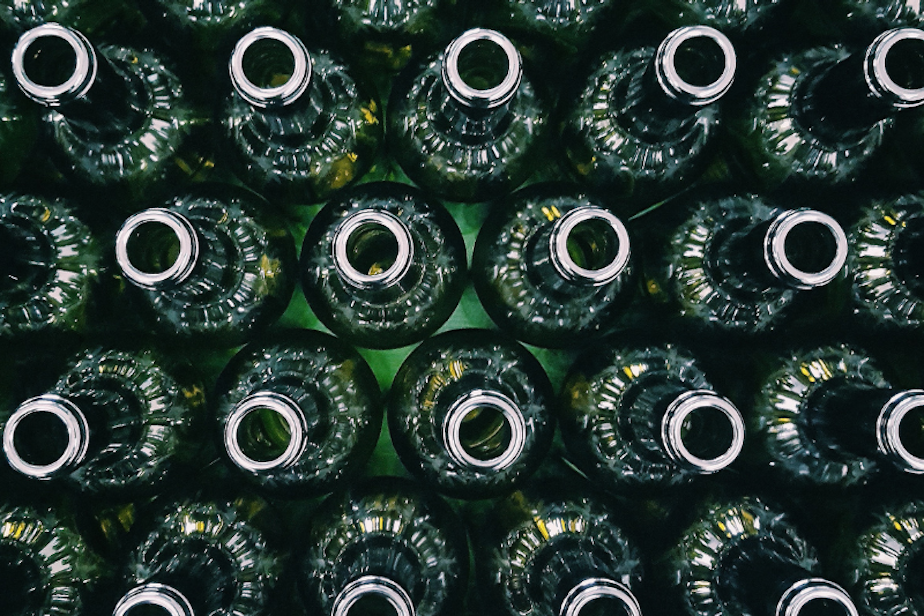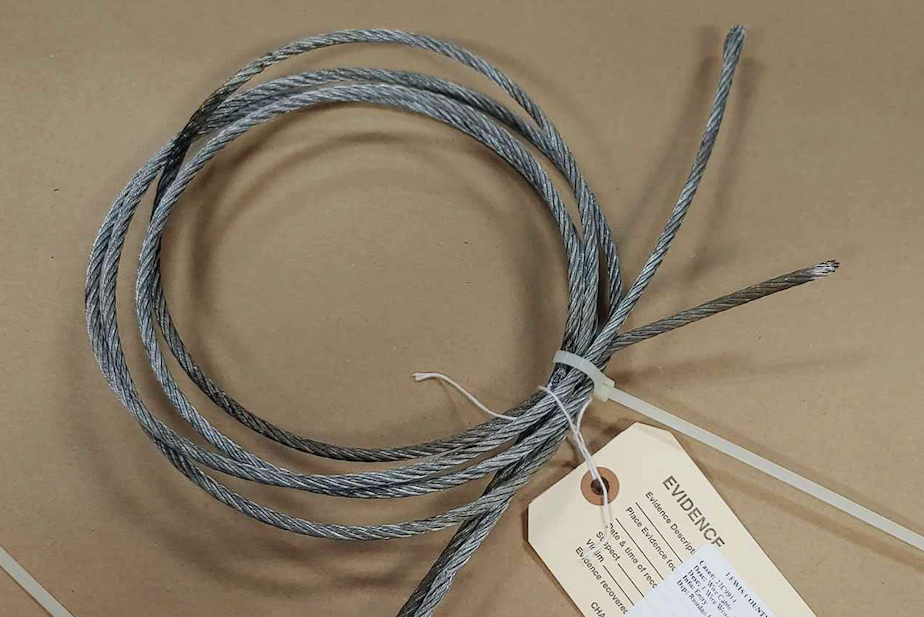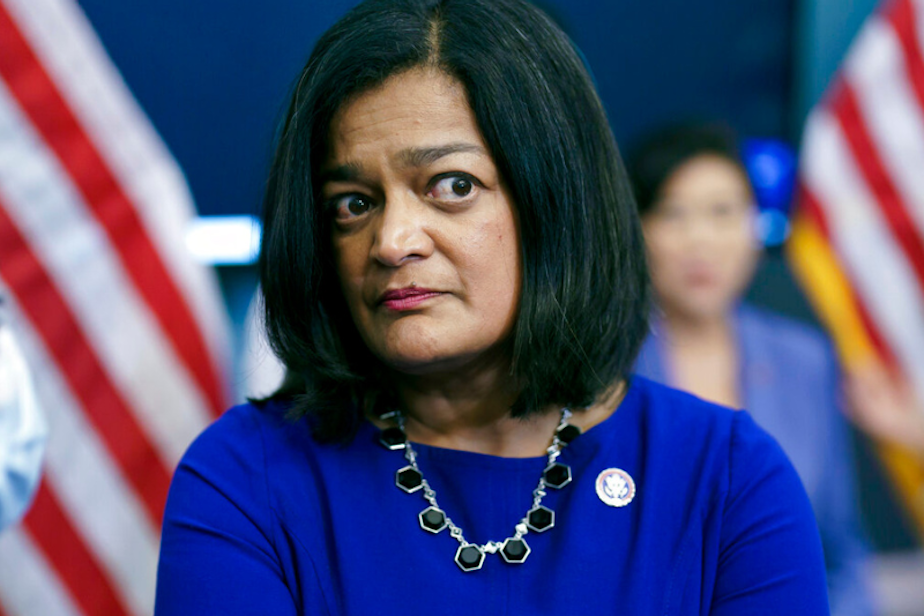A bottle proposal for Washington: Today So Far

Washington state lawmakers have tucked a proposal for a bottle/can deposit program into legislation slated for this year's session. Could it pass, and what would be the benefits?
This post originally appeared in KUOW's Today So Far newsletter for January 6, 2023.
In another life, I was a stellar housekeeper at a Bavarian hotel. I was good. I could put hospital corners on a bed so tight it would cut off circulation before you got a good night's sleep. I was so good that the hotel gave me my own room to live in.
OK, they gave all employees a room, and we had to share it with a roommate — I got top bunk. But I say all this as a roundabout explanation for why I once lived in Bavaria, and in turn, was able take advantage of the region's beer bottle deposit program. Basically, whenever you bought a bottle of beer, you paid a small deposit on it. If you returned that empty bottle, you got the money back.
We hotel workers bought beer by the crateful. I forget how the beer math worked at the time (in my defense, I don't think a lot of people remember beer math), but if we returned X number of crates, we earned the equivalent of a free crate of fresh beer. It was like you were sipping toward savings. For part of the year, we would keep the crates outside our window, in the cold alpine snow. And once, when the snow melted away, we discovered we had a whole crate of beer we forgot about. I imagine that this is what gold miners felt like, or when squirrels find nuts they forgot they buried.
That little bottle deposit brought a lot of joy back then, after a hard day of scrubbing showers, cleaning messes, and coming away with traveler horror stories that I try to forget to this day. Perhaps that's why I got a little excited to hear that Washington lawmakers are considering a bottle deposit for our own state — buy a can or a bottle, pay 10 cents, return the container, and get 10 cents back.
This proposal is tucked into a larger "WRAP Act" (Washington Recycling and Packaging Act) being pushed by state Rep. Liz Berry (D–Seattle) and state Sen. Christine Rolfes (D–Bainbridge Island). The overall goal is to cut down on waste from packaging, and get more waste into the recycling system. The bottle deposit program plays into the big picture.
"I am most excited about the inclusion of a bottle deposit system in the bill, similar to what Oregon has," Berry said this week.
After moving back to the states from Bavaria, I went to Portland where I learned that, in a pinch, I could collect up all the cans and bottles around me and get some quick cash. Oregon has had a bottle deposit program since 1971, under the idea that it encourages folks to clean up littered beverage containers. I would save up all the containers around my place, plus any I came across. Then I'd take them to Fred Meyer, which had an automated center for returning bottles and cans. After suffering through the stench of stale beer, I'd get a receipt which I traded for money at the store. There were a few steps, but it was simple.
Oregon's program has evolved over the years. In 2019, lawmakers in that state updated the law to fine people $250 if they attempt to take containers down from Washington and exchange them for Oregon deposit money. Basically, the same interstate fraud that Kramer and Newman attempted on "Seinfeld."
Oregon is not alone. California, Connecticut, Hawaii, Iowa, Maine, Massachusetts, Michigan, New York, and Vermont each have deposit programs of their own. Guam has one, too.
This is not the first time Washington has considered a container deposit program like this. There were attempts in 2011, 1982, 1979, and 1970. In most cases, the idea was shot down by voters. Each time, the argument focused on keeping things clean on the street, in parks, and other corners of the state. As someone who has lived among a deposit culture, I can say that, if such a program is approved in Washington, you can expect your streets to be a bit cleaner. The plastic bags, caps, and random socks will still be there, but the bottles and cans will be gone. It's also likely that folks will rummage through your recycling bin. On the upside, you could get to know your local rummager, like I did in Portland. He was a cool dude. And folks will have some extra cash to throw around. Not enough to replace a paycheck. But 200 cans can get you $20, enough to help out every now and then, put into a gas tank, contribute to groceries, etc.
"If we really want to meet our goals to reduce litter and increase, reuse, and recycle targets, and refill targets, Washington must implement this type of program," Rep. Berry said.
It's possible that the current proposal will meet the same fate as past proposals and won't make it through Olympia this legislative session. After all, it has to compete with a few other high-profile priorities, like homelessness and housing, gun safety, and the budget.
If it does succeed, however, you can expect that I will be rummaging through my neighbors' recycling bins after sundown. Read the full story on the deposit program here.
Before I let you go today, I thought I'd try something a little new. I often find more headlines than space in TSF. So I'm going to end with a quick top five stories spanning local, national, and international, which I will call the "Fast Five," or the "Dyer Five," maybe the "Jackson Five." I'll work on it. Here's my Fresh Five today:
- Flu and RSV on the decline in Washington state, Covid trajectory unclear
- Sony says its PlayStation 5 shortage is finally over, but it's still hard to buy
- The U.S. job market is still healthy, but it's slowing down as recession fears mount
- Investigators reveal new information tying Idaho murders to Bryan Kohlberger
- Fatlesque Fest: Celebrating a community of curves
AS SEEN ON KUOW

This cable, burned in half by an arc of high-voltage electricity, was recovered from a damaged substation in Toledo, Washington, on Aug. 5, 2022. Recent attacks on the Northwest electrical grid have law enforcement agencies on high alert, but KUOW has learned that attacks on the grid have been surging in Washington state since last summer. (Lewis County Sheriff's Office)
DID YOU KNOW?
What is a "nadir"? I mean, aside from sounding like some third-party candidate. This word came up recently in a KUOW story by John Ryan. You likely know Washington state's highest point, which is Mount Rainier. But do you know the state's lowest geographical point? In other words, its "nadir."
Washington's lowest point is deep under Puget Sound just off Stuart Island in the San Juans. This point is the state's nadir, its lowest point. It's about 1,140 feet below the surface of the water. John points out that you could place Seattle's Columbia Center at this depth and still have about 100 feet of water on top of it. It's so deep that no person, or robotic machinery can dive far enough to see the bottom. No light gets down there and no one has ever seen the floor. But as state biologists note, that doesn't mean there is no life at those depths. So my guess is that is where the kraken lives.
This spot is so low, and probably because nobody has ever visited, it has no name. Mount Rainier has a name. We named a whole cape "disappointment." The town of Vader was named after Star Wars (OK, not really.) But this deep point under Puget Sound is nameless. John has a few ideas, including "Deepy McDeepface." He may say he was joking about that, but really, we know who to blame when the maps are made.
"Nadir" is a word with Arabic roots, originally implying the opposite of "zenith," the highest point. As such, it relates to a lot of mathematic and science concepts. But for our everyday usage, nadir is a low point.
ALSO ON OUR MINDS

Jayapal: Chaos around House speaker vote signals 'a very difficult two years' ahead
Despite wanting Friday off to mark the second anniversary of the Jan. 6 attacks on the Capitol, representatives are headed back to the floor to try yet again to attempt to find a speaker. But Washington Democratic Congressmember Pramila Jayapal says the "drama" will "quickly seep out to the rest of the country" even after a speaker is selected.

